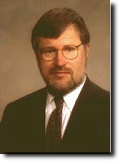
Great Quotes By: Gene Edward Veith, Jr.
From Postmodern Times:
Where there are no absolute truths, the intellect gives over to the will. Aesthetic criteria replace rational criteria. Listen to the way people today discuss religion. “I really like that church,” they will say. Agreeing with that church or believing in its teaching scarcely enters into it.… But then we start hearing about what the person does not like. “I don’t like the idea of Hell.” This is certainly an appropriate response—who cold possibly “like” Hell? But our natural distaste for this horrible doctrine is surely beside the point. The issue is not whether we like it, but whether there is such a place. Reality seldom takes into account our personal preferences, even in the most trivial facets of everyday life. That there might actually be a Hell, a realm of punishment and torment that lasts forever, is a momentous concept, staggeringly important. (193-194)
Although postmodernists tend to reject traditional morality, they can still be very moralistic. They will defend their “rights” to do what they want with puritanical zeal. Furthermore, they seem to feel that they have a right not to be criticized for what they are doing. They want not only license but approval. Thus tolerance becomes the cardinal virtue. Under the postmodernist way of thinking, the principle of cultural diversity means that every like-minded group constitutes a culture that must be considered as good as any other culture. The postmodernist sins are “being judgmental,” “being narrow-minded,” “thinking that you have the only truth,” and “trying to enforce your values on anyone else.” Those who question the postmodernist dogma that “there are no absolutes” are excluded from the canons of tolerance. The only wrong idea is to believe in truth; the only sin is to believe in sin. (195-196)
People, feelings, ideas, values all must be quantified. The technological mind-set must reduce everything to numbers. We are in the age of statistics—opinion polls, standardized tests, and “assessment instruments” which purport to measure everything from the quality of our work to our psychological condition. We evaluate not in terms of right and wrong, but by circling a number on a ten-point scale. (206)
Christians who decry the Christian subculture should realize that the alternative may be cultural extinction. Christianity has been excommunicated from the culture at large—systematically excluded from the schools, the intellectual establishment, and the media. The establishment of Christian schools, publishers, arts groups, broadcasters, businesses, and so on may be one of the great achievements of the twentieth-century church. As postmodernist pressures intensify, having counter institutions already in place may prove invaluable for Christians to stage an effective resistance. Christians should use their bases to make forays into the culture at large and exert their influence at every level. They should certainly resist the temptation to remain in the security of the “Christian ghetto.” they may find themselves accepted, though, only up to a point. Usually, people do not choose to live in a ghetto. (210)
The problem is not that Christians have their own parallel institutions, but that these institutions are sometimes so similar to secular ones. The mind-set cultivated by the evangelical subculture often startlingly resembles that of secular postmodernism. (211)
Instead of preaching that leads to the conviction of sin and salvation through the cross of Jesus Christ, churches preach “feel-good” messages designed to cheer people up. Some have described postmodernist culture as a “therapeutic culture,” in which a sense of psychological well-being, not truth, is the controlling value. The contemporary church likewise faces the temptation to replace theology with therapy. (213)
Selected by Dr. Alan Snyder
